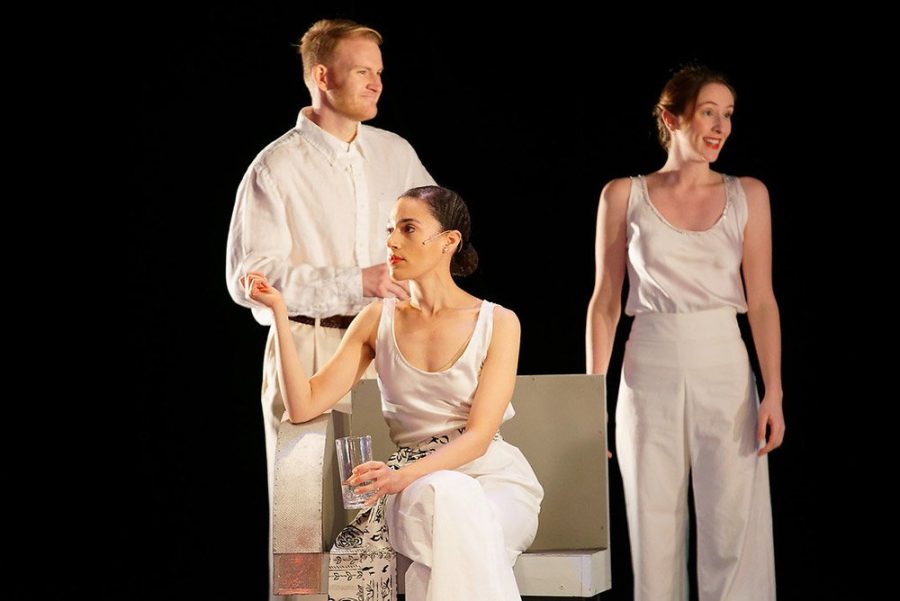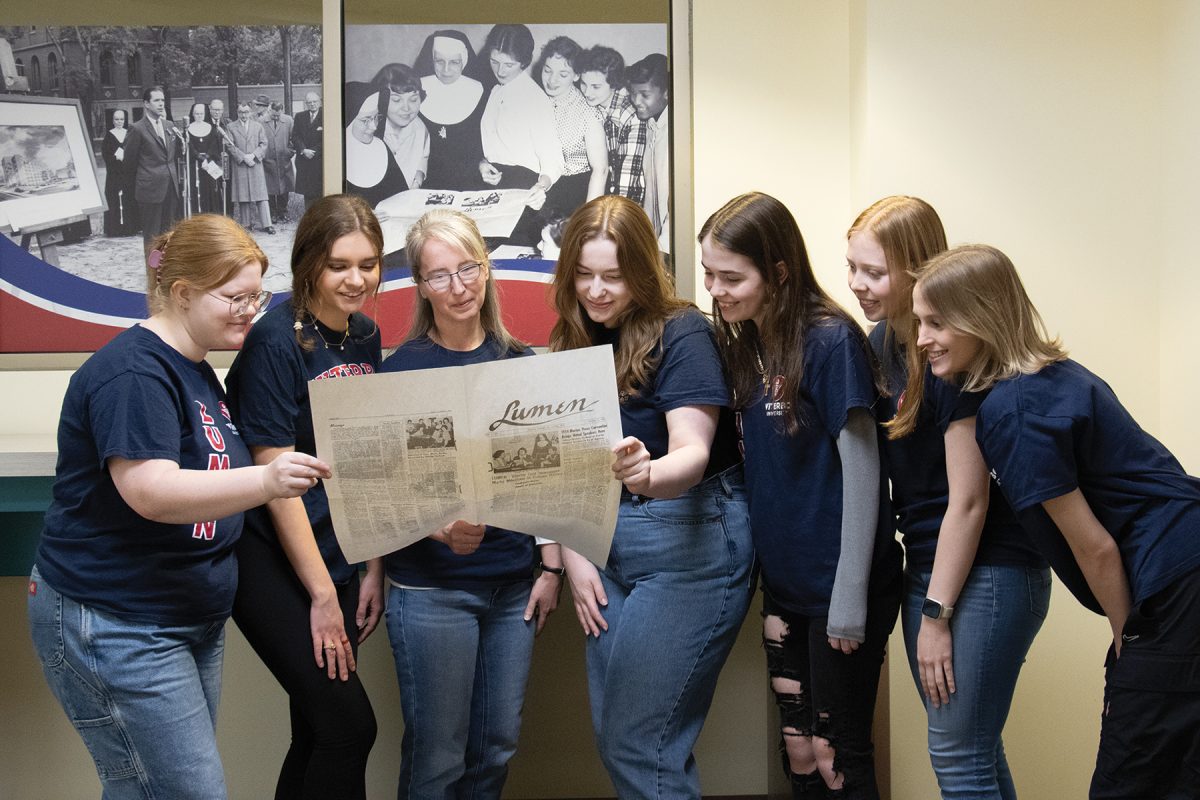Fitzgerald fiction brought to life: Aquila Theatre presents “The Great Gatsby”
Aamira Challenger (Jordan Baker), Palmyra Mattner (Daisy Buchanan), and Austin Lewis (Tom Buchanan) gather in the Buchanans’ living room. Photo courtesy of Aquila Theatre.
March 28, 2022
On March 10t at 7:30 p.m., the Fine Arts Center’s Main Theatre hosted the New York-based Aquila Theatre and its original stage adaptation of F. Scott Fitzgerald’s “The Great Gatsby.” The production was conceived and written by the company’s Artistic Director, Desiree Sanchez. The small cast of seven actors, utilizing a minimalist set, faithfully brought fiction to life with their seamless delivery of text and personification of Fitzgerald’s personalities.
One of the most intriguing aspects of the performance was the show’s use of the character of Nick Carraway—storyteller in the novel—as both a narrator and participant in the plot. The actor portraying Nick, Conner Keef, was tasked with rendering Fitzgerald’s philosophical musings while the rest of the cast drew on the down-to-earth ethos of their characters. The contrast between the narrator’s poetic asides and other characters’ interactions served to draw the listener into the texture of Fitzgerald’s original writing in a way unmatchable on paper.
Sanchez’s rendition of the story did not change any major plot points, which is intriguing considering that Fitzgerald’s original book, published in 1925, entered the public domain in 2021. Because of this fact, the artistic director could have completely rewritten the story and crafted a completely divergent parody if she had wanted. However, she instead chose to retain all original story and character elements, merely adding light accents to a few of both. It was these touches that seemed to reach out to her contemporary audience the most.
The first of these, which was visible on the promotional materials, was the casting of Gatsby himself as an African American. Joshua Liburd, the actor chosen to play Gatsby, shared time on stage with a character who is hinted to be a white supremacist early on in the play. Tom Buchanan, wife of Gatsby’s old flame, has an exchange with the narrator near the exposition where he explains the main idea of a book he has read titled “The Rise of Colored Empires.” He says about it, “The idea is that if we don’t look out the white race will be…utterly submerged. It’s all scientific stuff; it’s been proved.” Though originally a gut-wrenching anecdote overshadowed by the novel’s larger plot, Sanchez uses the scene as a catalyst to reach her modern audience.
This spotlight is even more powerful considering that the famous tennis player that the Buchanans are hosting for the summer, Jordan Baker, is also portrayed by a person of color. With this accentuation of existing plot elements, Sanchez delivers a production true to the original text, but engaging for an audience that has experienced unrest in the area of race relations.
It is this artistic consideration and more that made Aquila Theatre’s production thought-provoking and engaging to attend—especially for previous readers of the novel. Those in this category might have come into the Fine Arts Center with the idea that the show’s major theme might be the corruption of wealth, but Sanchez chose to do the story and her audience justice by casting a brighter light on some of Fitzgerald’s nearly century-old themes.



